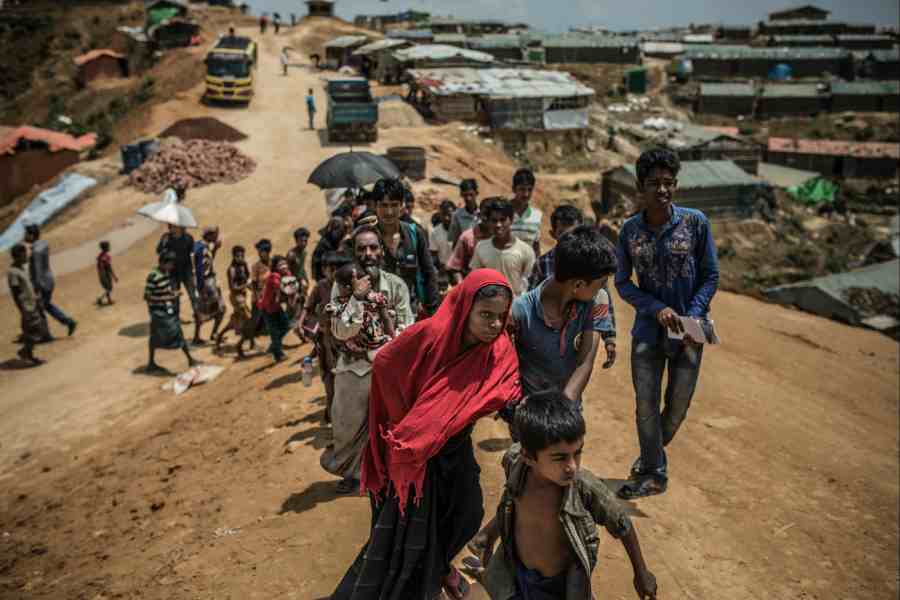A study by the Institute on Statelessness and Inclusion — an NGO based in Holland — and three Rohingya refugee groups has found that statelessness has made these people of Myanmar origin vulnerable to trafficking.
The study by researchers in Myanmar, India, Bangladesh and Malaysia has quoted several members and activists of the community whose identities have been kept anonymous to protect them from persecution. These refugees do not have the legal right to work in any of these countries.
The citizenship of Rohingyas was revoked in 1982 and they are currently the largest group of stateless people in the world with at least two million of them living as refugees outside their homeland. The exodus of Rohingyas increased after the ethnic riots in 2012, followed by the civil war and counter-insurgency operations in 2016-17.
In January, there were 29,361 refugees from Myanmar registered with the United Nations High Commissioner for Refugees in India, of which the study estimates that 18,000 are Rohingyas.
The briefing paper "Surviving Statelessness And Trafficking: A Rohingya Case Study of Intersections And Protection Gaps" blames both the Myanmar security forces and the Arakan Army rebel group for “human smuggling and trafficking, both facilitating travel and abusing Rohingya travellers en route…”.
It says: "In India, the legal status of Rohingyas has become increasingly precarious, leaving them at risk of forced repatriation or refoulement to Myanmar as well as arbitrary arrest and indefinite detention.”
The tolerance of Rohingya refugees — living in slums and operating in the informal economy in India — gave way to arrests and deportations after a central order to states to track them and a statement to this effect in Parliament in 2017 by then junior home minister Kiren Rijiju. Since then, several refugees have been detained in different states and community organisations estimate that 600 Rohingyas are under detention. The exact number of deportations is not known.
The report adds: "Rohingyas have been trafficked into bonded labour, domestic servitude, sex work, and for marriage. Socio-economic pressures, increased restrictions and threats to security, and experiences of xenophobia and islamophobia have also driven a ‘reverse migration’ of Rohingyas attempting to flee India to Bangladesh or sometimes Myanmar. To travel within India and to cross international borders without documents, they must turn to brokers. Sometimes the brokers and money lenders exploit or abuse them. Other times, they are arrested and detained in India, where they are at risk of indefinite detention or refoulement.”










